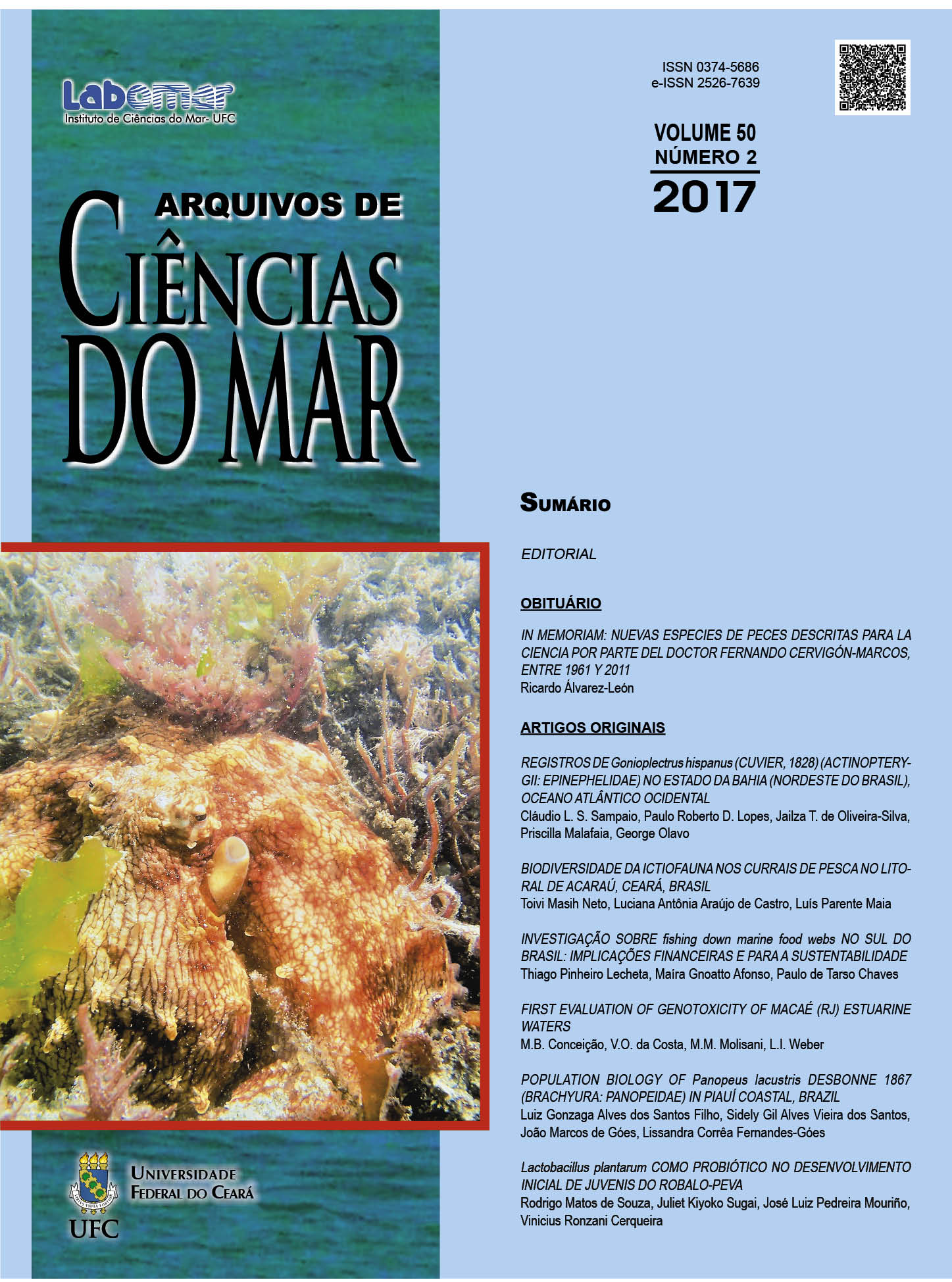Lactobacillus plantarum as a probiotic in the initial development of juvenile fat snook
DOI:
https://doi.org/10.32360/acmar.v50i2.31147Keywords:
Centropomus parallelus, aquaculture, digestive enzyme, bacteria and stress test.Abstract
With great potential for aquaculture, the fat snook need technologies for mass production of fingerling with high-quality for pre-ongrowing. One way of obtaining better results with healthy and resistant fish would be the use of probiotics. It was verified the influence of Lactobacillus plantarum supplementation to juvenile diet (56 days after eclosion) on growth, survival, activity of digestive proteases and resistance hypersaline stress. The test of 30 days was composed of three treatments, the first being exclusively fed with Artemia and the two feeding transition received for 15 days and Artemia feed with one of supplementation with L. plantarum and after exclusively the respective feed. The results indicate that bacterial supplementation during dietary transition resulted in increased alkaline protease activity in the digestive tract of fat snook juveniles, as well as increased resistance to salt stress, indicating fish better and healthier, assisting in production massive juvenile fat snook with high quality and ready for storage in pre-ongrowing system.
Downloads
Published
Issue
Section
License
1. Proposta de Política para Periódicos de Acesso Livre
Autores que publicam nesta revista concordam com os seguintes termos:
- Autores mantém os direitos autorais e concedem à revista o direito de primeira publicação, com o trabalho simultaneamente licenciado sob a Licença Creative Commons Attribution que permite o compartilhamento do trabalho com reconhecimento da autoria e publicação inicial nesta revista.
- Autores têm autorização para assumir contratos adicionais separadamente, para distribuição não-exclusiva da versão do trabalho publicada nesta revista (ex.: publicar em repositório institucional ou como capítulo de livro), com reconhecimento de autoria e publicação inicial nesta revista.
- Autores têm permissão e são estimulados a publicar e distribuir seu trabalho online (ex.: em repositórios institucionais ou na sua página pessoal) a qualquer ponto antes ou durante o processo editorial, já que isso pode gerar alterações produtivas, bem como aumentar o impacto e a citação do trabalho publicado (Veja O Efeito do Acesso Livre).

